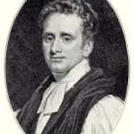“Blind but blessed” — the woman who saw more with her heart than most see with their eyes.
Early Life and Blindness
Frances Jane Crosby, known to the world as Fanny J. Crosby, was born on March 24, 1820, in Southeast, New York. At just six weeks old, she developed an eye infection. A local man posing as a doctor prescribed a hot mustard poultice which permanently damaged her optic nerves. Though she was not born blind, this treatment rendered her blind for life.
Rather than letting this tragedy define her, Fanny later said,
“It seemed intended by the blessed providence of God that I should be blind all my life, and I thank Him for the dispensation.”
Her faith, not her handicap, shaped her identity.
Education and Spiritual Growth
At age 15, Fanny entered the New York Institution for the Blind, where she studied and eventually taught for 23 years. She became proficient in poetry and rhetoric, memorized large portions of the Bible—including the Pentateuch, the Gospels, Proverbs, and many Psalms—and began composing poems.She was deeply religious, a Methodist, and a firm believer in personal salvation through Jesus Christ. Though she had many gifts, she considered her spiritual sight more valuable than physical vision.
Hymn Writing Career
Fanny Crosby’s hymn-writing career began in earnest in the 1860s when she was in her forties. She worked with some of the greatest gospel musicians of the day, including William H. Doane, Philip P. Bliss, Ira D. Sankey, and George F. Root.
She wrote over 8,000 hymns under her name and dozens of pen names, since publishers worried hymnals would seem dominated by one person. Her lyrics were often written in minutes—flowing easily from her deep well of Scripture, prayer, and experience.
Most Famous Hymns:
-
"Blessed Assurance" – Her personal testimony in hymn form.
-
"To God Be the Glory" – A triumphant anthem of praise.
-
"Pass Me Not, O Gentle Savior" – A heartfelt prayer for mercy.
-
"Rescue the Perishing" – A call to evangelism and compassion.
-
"Jesus Keep Me Near the Cross" – A quiet devotion to the Savior’s sacrifice.
Each of her hymns reflected the themes of salvation, trust, redemption, and the joy of the Christian life.
Faith and Ministry
Fanny viewed her songwriting as a ministry. She visited prisons, homeless missions, and rescue shelters—often ministering with her songs and simple messages of hope. Her hymns were frequently sung at revival meetings and evangelistic crusades, especially by Dwight L. Moody and Ira Sankey.She never sought wealth from her hymns. Despite their popularity, she lived modestly and often gave away what little she had to help others.
“If I had a choice, I would still choose to remain blind,” she once said, “for when I die, the first face I will ever see will be the face of my blessed Savior.”
Personal Life
Fanny married Alexander Van Alstyne, a fellow blind teacher and talented musician. Their only child died in infancy—a grief she rarely spoke about, but one that informed the gentle pathos in many of her hymns.She remained active in writing and ministry well into her 90s. When asked how she wanted to be remembered, she replied simply:
“She did what she could.”
Death and Legacy
Fanny J. Crosby died on February 12, 1915, at the age of 94. She is buried in Bridgeport, Connecticut, where her tombstone reads:
“Aunt Fanny: She hath done what she could.”
More than a century later, her hymns are still sung across the globe. Her life is a powerful testimony to God's grace and how limitations can become platforms for His glory.
Fanny Crosby never saw the light of this world, but she reflected the light of heaven with extraordinary clarity. Her hymns continue to open eyes and soften hearts with the beauty of the gospel.
“Blessed assurance, Jesus is mine!
Oh, what a foretaste of glory divine!”





































